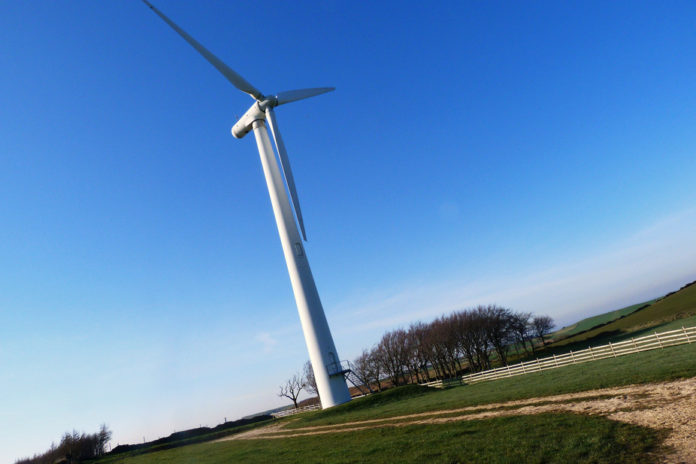
By Roger Kemp, Lancaster University
Our children will enjoy in their homes electrical energy too cheap to meter.
– Lewis L Strauss, chair of the US Atomic Energy Commission, 1954.
When Strauss first coined the phrase above he was thinking of hydrogen fusion, a technology that always seems to be a tantalising 30 years away. However even without futuristic new technology the British electricity system may actually approach this mythical situation of energy that is “too cheap to meter”.
In the future, the industry’s costs will be determined by the number and size of power plants and turbines that will be needed, rather than the fuel burned in them. This won’t mean an end to electricity bills – but it will mean some major changes in how they are calculated.
When the UK’s electricity industry was privatised in the 1990s its power plants had the capacity to generate more than was needed. This was despite the fact many of these plants had already been in service for decades. The national transmission network was also well established. This meant the cost of electricity was largely determined by fuel prices – mainly coal and gas.
The hardware used by the industry today has changed little since privatisation – in fact much of it has been in service since the 1960s. On a typical day in November 2014, 37% of the UK’s electricity was produced by 40-year old coal-fired power stations, 31% came from gas power stations, many built during Margaret Thatcher’s “dash for gas”, and 14% from nuclear power stations, all but one of which are scheduled to close in the next ten years. The rest came from renewables and imports from the continent.
Over the coming 15 years this will change. To meet national and European targets for CO2 and industrial pollution, existing coal plants will be phased out and gas will be reserved for periods of peak demand. Most electricity will be provided by nuclear and renewables, supplemented during the winter by coal and gas.
This means a big shift from fuel to infrastructure costs – constructing the power stations, turbines, solar panels and associated infrastructure will cost many billions of pounds. Nuclear power’s refuelling and operating costs are relatively low. For wind and solar, the operating costs are effectively zero.
Peaks and troughs
To get anywhere near its emissions targets the UK will have to see a drastic reduction in the amount of gas used for home heating. While scrapping gas boilers in favour of electric heat pumps may reduce emissions, it will also mean the load on the electricity grid will be much greater in winter than in summer.
The problem here is that renewable energy doesn’t operate on the same cycle as us humans – solar panels are much less productive on a gloomy day in December, when electricity demand is high, than on a sunny day in June, when it is low.
The financial incentives for electricity generators are changing. The US fracking boom has reduced natural gas prices in America (but not in Europe as the networks are not connected) and many US electricity generators have therefore switched from coal to gas, leaving a surplus of coal. This has in turn reduced world coal prices at a time when the situation in Ukraine has left gas supplies uncertain. Therefore, if they have the choice, UK generators are burning coal rather than gas.
At periods of low electricity demand, the availability of almost free wind energy is depressing the demand for fossil-fuel generation so it is not difficult to see why the UK’s gas plants are increasingly under-used.
The market for electricity
In the UK, generators (the firms who own the power plants) sell their electricity to retailers (the firm named at the top of your bill) through an auction every half hour. The market works on energy prices (£/kWh). This was logical when the investment in power stations had been paid-off years earlier and fuel inputs such as coal or gas were the biggest cost.
However, in the approaching situation where marginal energy costs could be almost zero and capacity charges – based on peak usage – are very high, it is difficult to see how an electricity market auction is possible. Bid prices would no longer be related to operating costs and there must be a risk that it would be closer to a game of poker, where the bid is based on an assessment of the competition, rather than on cost.
A free market for electricity would be likely to produce extremely high prices in winter, particularly at periods of peak demand, but very low prices at times when the demand can be met entirely by renewable energy. If these energy costs are passed on to the customer, we could see the cost of using an electric kettle to make a cup of tea at 18:30 in January being many pounds, but electricity costing almost nothing during long periods in the summer.

Want one this eve? It may cost you.
Fred Jala, CC BY
Headlines about a pensioner paying £20 to boil a kettle would be a big challenge for whichever government is in power. However, if peak-time prices are not allowed to reflect shortages there would be no incentive for continued investment in backup fossil fuel generation to be used during these periods. Such generation would be used only rarely, but without it the UK would risk blackouts – even more politically challenging.
Reforms to the electricity market are supposed to resolve this problem through introducing regular capacity auctions, where generators can bid to hold otherwise unused plants in readiness over a particular time period. Taken with an agreed “strike price” for renewable and nuclear generators which guarantees a minimum payment per kWh this has the effect of almost eliminating a competitive market for low-carbon electricity generators.
As leading energy economist Dieter Helm wrote at the time of electricity privatisation, “the idea that governments could simply retreat from the scene and leave it to competitive markets is an illusion – energy is just too important to the economy and society”.
Perhaps consumers should be charged on their contribution to national peak load, rather than on their energy consumption. Then energy really would become too cheap to meter.
![]()
This article was originally published on The Conversation.
Read the original article.




















